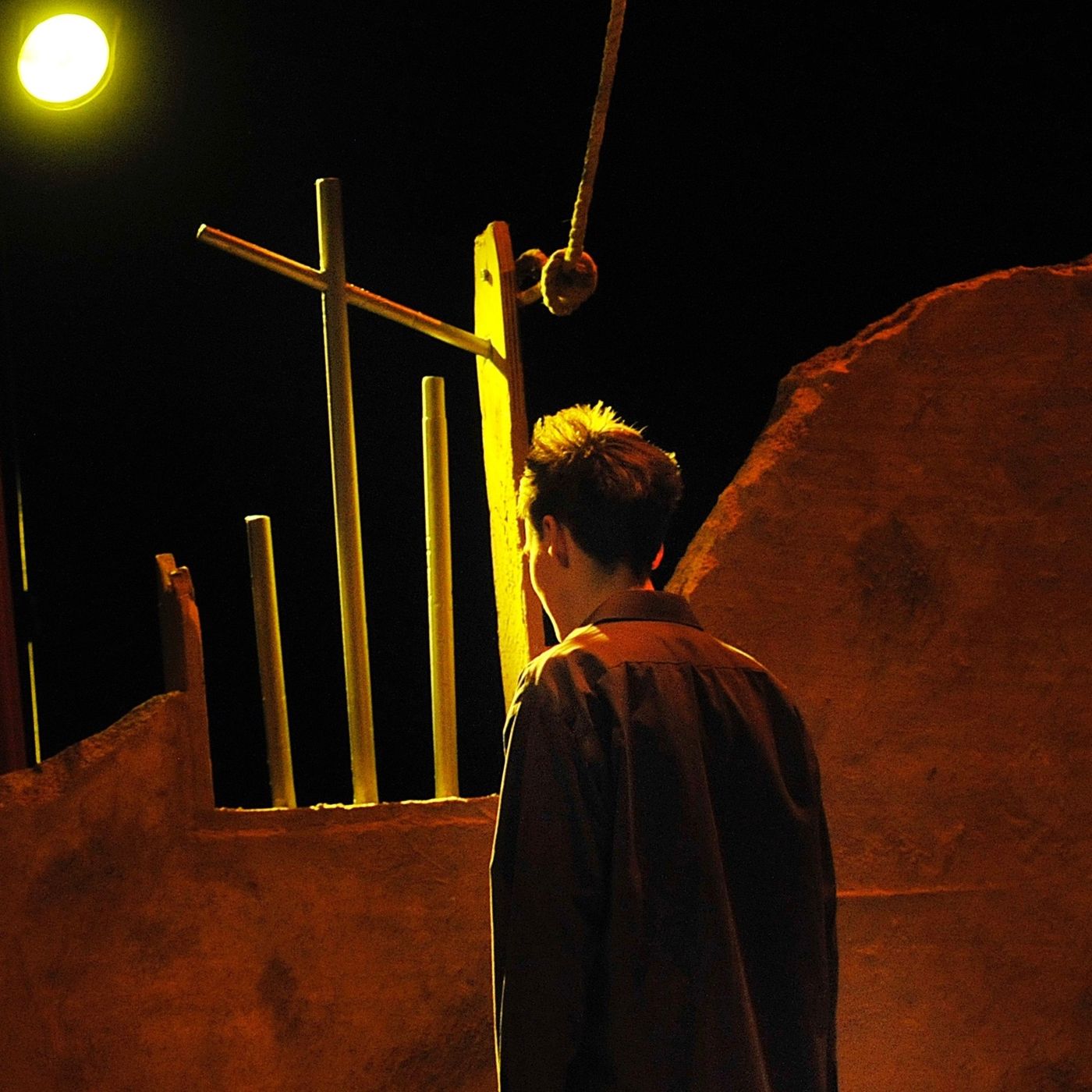Review: JUDAS – ADELAIDE FRINGE 2019 at Bakehouse Theatre
 Reviewed by Barry Lenny, Monday 4th March 2019.
Reviewed by Barry Lenny, Monday 4th March 2019.
Last year, Tim Marriott brought us the much-acclaimed play, Mengele. This year, he has already given us All Change. In both of these, he worked with local performer, Stefanie Rossi. If you missed them, you missed some exemplary theatre, but here is your chance to catch Marriott and Rossi, together again, joined, this time, by Marc Clement, in Judas, under the dual direction of Tony Knight and Tim Marriott.
The production is presented by Marriott's company, Smokescreen Productions, in conjunction with STARC Productions, a company set up by the other three to present high-quality work in Adelaide. Together, they are a formidable group. Marriott has had a highly successful career in stage and screen, that is going from strength to strength, Knight was the head of Acting at the National Institute of Dramatic Art (NIDA), and Rossi and Cement have received glowing reviews for all of their performances, Rossi also having been given the Adelaide Critics Circle Emerging Artist Award in December, last year, and having travelled to the Edinburgh Fringe with Mengele.
This latest production is not a dramatisation of the biblical story of Judas. It is a 21st Century speculation on what might happen if a charismatic figure emerged from a desert, somewhere, possibly in the Middle East, although it might just as easily be the Australian outback, preaching peace and harmony, in a country committed to a strict single religion, with war, violence, and persecution rife. This modern-day Judas is subjected to intense interrogation and physical abuse.
"War, what is it good for? Absolutely nothing." Edwin Starr reached number one on the hit parade in 1970 with his song, War, protesting the conflict in Vietnam. Barry McGuire's Eve of Destruction, said even more about the futility and hypocrisy. There were many others. Those protest songs are, so sadly, as relevant as ever, if not more so.
Judas begins with a brilliantly written and profoundly delivered plea that one immediately wishes that it would be possible to sit every world leader in the audience, at least for those few opening minutes, as a lecturer speaks to his students. Marriott is magnificent as the man, the 'Everyman', caught up in the middle of the conflict of ideologies, of wars quibbling over minor differences in belief systems, of global insanity over whose book is best, and disbelief on any of them, the worst of all crimes.
Clement is the mercenary, the single-minded, brutal, Afrikaans sadist, determined, by whatever means necessary, to extract information, stolidly unchanging, until the final moments, whilst Rossi is the American 'good cop' to Clement's 'bad cop', using more subtle approaches, negotiating, with light and shade, changing like a reed in the wind to counter the prisoner's commitment, but employing no less insidious devices to achieve her ends. Marriott is Youseff, the man caught in the middle of the turmoil between these two, and he is the one who must ultimately choose between himself and his family, and the advocate of gentleness, peace, and universal love.
Even with his hands clasped together on the table, and his head bowed forward, looking down intently at his hands, the man, Youseff, motionless, shutting himself off from the world, Marriott is riveting. This is a master class in acting.
The simplicity, the straightforward storytelling of the biblical Judas, tells us virtually nothing of the person and his motivation. Whether or not one believes in the bible as an accurate historical record, or treats it as being as much fiction as anything from C. S. Lewis, or J. R. R. Tolkien, or, for that matter, Stephen Donaldson, or H. P. Lovecraft, is unimportant. These are issues of ethics, of humanity, and of compassion, and understanding.
This is a powerful, moving, and vitally important piece of theatre, the sort of thing that the Fringe was created to present, offering equally high quality works alongside those in the Festival of Arts, as it was first known. In those early days, there was so much brilliance, genius, innovation, but, now, finding those few remaining gems amongst the dross makes it all worthwhile.
Do not let this piece slip past. Book your tickets now. With the first of the two previews almost sold out, be sure that you have tickets to see this work.
Reader Reviews
Videos

